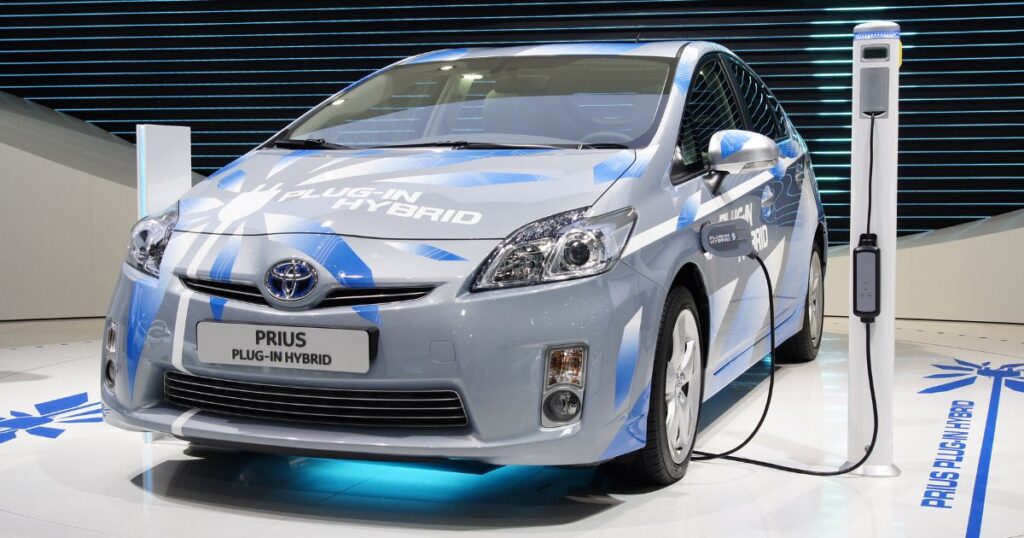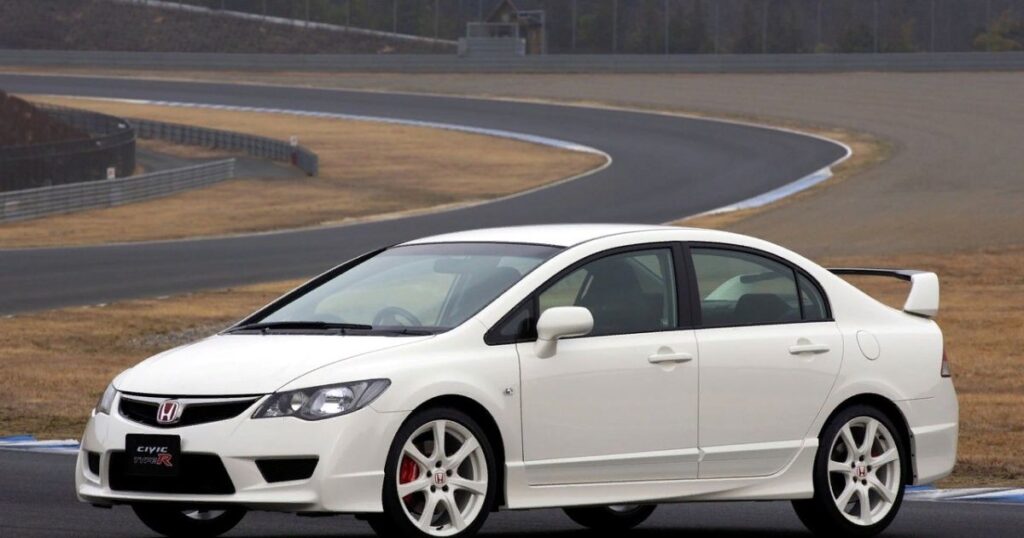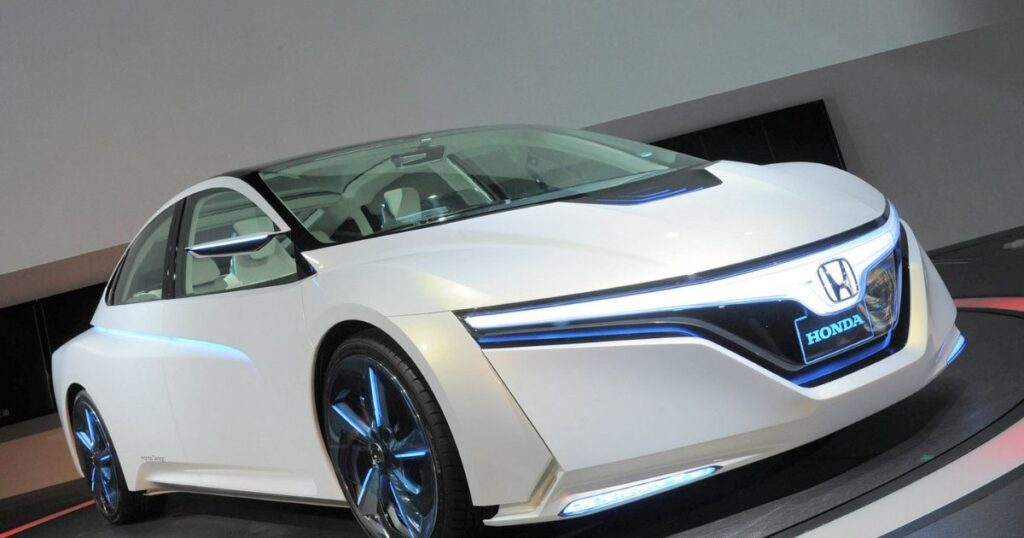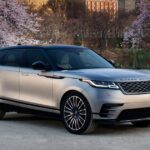In today’s world, where environmental concerns and rising fuel costs are at the forefront, hybrid cars have emerged as a game-changer in the automotive industry. These innovative vehicles combine the power of a traditional gasoline engine with an electric motor, offering a unique driving experience and significant benefits.
But what is a hybrid car, and how do these remarkable machines work? Join us as we delve into the fascinating world of hybrid vehicles, exploring their inner workings, types, advantages, and more.
What Is a Hybrid?
A hybrid car is a vehicle that utilizes two distinct power sources: an internal combustion engine (gasoline or diesel) and an electric motor. Unlike fully electric vehicles (EVs), which rely solely on rechargeable batteries, hybrids blend these two propulsion systems, allowing them to operate on gasoline while benefiting from electric power’s efficiency and zero-emissions capabilities.
The essential advantage of hybrid cars lies in their ability to capture and reuse energy that would otherwise be lost during braking. This process, known as regenerative braking, converts the kinetic energy from the vehicle’s motion into electrical energy stored in the hybrid’s battery pack. This stored energy can subsequently be used to power the electric motor, reducing the workload on the gasoline engine and, consequently, improving fuel efficiency.
Types of Hybrid Cars

While all hybrid cars share the fundamental concept of combining an internal combustion engine with an electric motor, several hybrid architectures have unique characteristics and advantages.
Parallel Hybrid
Parallel hybrids are the most common type of hybrid vehicle on the market today. In this configuration, the gasoline engine and the electric motor can power the wheels independently or in tandem. The system is designed to select the most efficient power source or combination based on driving conditions and the vehicle’s speed.
Examples of parallel hybrid models include:
- Honda hybrids (e.g., Honda Insight, Honda Civic Hybrid)
- Hyundai and Kia hybrids (e.g., Hyundai Ioniq Hybrid, Kia Niro Hybrid)
- Toyota and Lexus hybrids (e.g., Toyota Prius, Lexus RX Hybrid)
- Ford hybrids (e.g., Ford Maverick Hybrid)
Series Hybrid
The gasoline engine does not directly power the wheels in a series hybrid system. Instead, it acts as a generator, providing electricity to charge the battery pack and power the electric motor responsible for propelling the vehicle. This design results in a smooth and seamless driving experience, as the electric motor drives the wheels.
While series hybrids may sacrifice some efficiency due to the extra step of converting gasoline power into electricity, they often make up for it with their superior power delivery and responsive acceleration. Honda is a prominent manufacturer of series hybrid vehicles, with models such as the latest Honda Civic Hybrid, Honda CR-V Hybrid, and Honda Accord Hybrid featuring this technology.
Plug-In Hybrid
Plug-in hybrid electric vehicles (PHEVs) combine the best of both worlds: an electric car’s efficiency and emission-free driving and the extended range and convenience of a gasoline-powered vehicle. These hybrids feature larger battery packs that can be recharged by plugging into an external power source, allowing for extended all-electric driving ranges of 20 to 50 miles.
The gasoline engine kicks in once the battery’s charge is depleted, providing the range for longer journeys. This versatility makes PHEVs an attractive choice for commuters who can take advantage of electric-only driving for their daily commute while still having the flexibility for longer trips without range anxiety.
Examples of popular plug-in hybrid models include:
- Toyota Prius Prime
- Chrysler Pacifica Hybrid
- Hyundai Ioniq Plug-In Hybrid
- BMW X5 xDrive45e
Do You Have to Charge a Hybrid Car?
One of the most common questions regarding hybrid vehicles is whether they need to be charged like fully electric cars. The answer is that it depends on the type of hybrid.
Regular hybrids like parallel and series do not need to be plugged in and charged externally. These vehicles generate and store electrical energy through regenerative braking, which captures the kinetic energy from the vehicle’s motion and converts it into electrical energy stored in the battery pack.
However, plug-in hybrid electric vehicles (PHEVs) require external charging to take full advantage of their extended all-electric driving range. These vehicles can be plugged into a standard household outlet or a dedicated charging station, allowing their larger battery packs to be recharged for emission-free, electric-only driving.
Are Hybrid Cars Worth It?
Investing in a hybrid car ultimately depends on individual driving habits, budget considerations, and personal preferences. However, there are several compelling reasons why hybrid vehicles are often considered a worthwhile investment:
Improved Fuel Efficiency
Hybrid cars can achieve significantly better fuel economy than their conventional gasoline-powered counterparts, translating into substantial savings at the gas pump over the vehicle’s lifetime.
Lower Emissions
By combining an electric motor with a gasoline engine, hybrid cars produce lower levels of harmful emissions, making them a more environmentally friendly choice.
Potential Tax Incentives
In many regions, hybrid vehicle owners may be eligible for tax credits or rebates, further offsetting the higher initial cost of these vehicles.
Extended Brake Life
The regenerative braking system in hybrid cars reduces the wear and tear on traditional brake pads and rotors, potentially extending their lifespan and reducing maintenance costs.
Smooth and Quiet Operation
The electric motor in hybrid vehicles provides smooth and quiet acceleration, especially at lower speeds, contributing to a more pleasant driving experience.
While hybrid cars typically have a higher upfront cost than their gasoline-only counterparts, the long-term savings on fuel and maintenance can often offset this initial investment, especially for drivers who rack up significant mileage.
How Hybrids Benefit You
Hybrid vehicles offer many benefits that can positively impact your wallet and the environment. Let’s explore some of the key advantages of owning a hybrid car:
- Fuel Savings: By utilizing an electric motor and regenerative braking, hybrid cars can achieve impressive fuel economy ratings, resulting in substantial savings at the gas pump over time.
- Reduced Carbon Footprint: With lower emissions and improved fuel efficiency, hybrid vehicles have a more minor environmental impact than traditional gasoline-powered cars.
- Extended Brake Life: The regenerative braking system in hybrids reduces wear and tear on traditional brake components, potentially extending their lifespan and reducing maintenance costs.
- Smooth and Quiet Driving Experience: The electric motor in hybrid vehicles provides a smooth and quiet driving experience, especially at lower speeds, contributing to a more enjoyable and refined ride.
- Versatility: Hybrid cars offer the convenience of gasoline power combined with the efficiency and environmental benefits of electric propulsion, making them suitable for various driving needs.
- Access to Incentives: In many regions, hybrid vehicle owners may qualify for tax credits, rebates, or other incentives designed to encourage the adoption of more environmentally friendly transportation options.
Other Types of Hybrids
While parallel, series, and plug-in hybrids are the most prevalent types of hybrid vehicles, there are a few other variations worth mentioning:
Mild Hybrids
Also known as “mild hybrid electric vehicles” (MHEVs), these systems feature a small electric motor and a 48-volt battery that assists the gasoline engine during acceleration and provides start-stop functionality. However, mild hybrids cannot propel the vehicle solely on electric power.
Fuel-Cell Hybrids
These hybrid vehicles use a hydrogen fuel cell instead of a gasoline engine to generate electricity, which powers an electric motor for propulsion. Fuel-cell hybrids operate solely on electricity and produce zero emissions, with the only byproduct being water vapor. However, the limited availability of hydrogen fueling stations remains a significant barrier to widespread adoption.
An example of a fuel-cell hybrid vehicle is the Toyota Mirai, which boasts an impressive range of around 400 miles and can be refueled in just a few minutes, much like a conventional gasoline-powered car.
Here is the continued article:
Explore the Gas Mileage for Hybrid Cars at Straub Honda!
At Straub Honda, we understand the importance of fuel efficiency and environmental responsibility. That’s why we’re proud to offer a diverse selection of hybrid vehicles, each designed to deliver exceptional gas mileage without compromising performance or driving pleasure.
Take, for instance, the iconic Honda Accord Hybrid, which boasts an impressive EPA-estimated combined fuel economy rating of up to 48 mpg*. This remarkable efficiency is achieved through Honda’s innovative two-motor hybrid system, which seamlessly blends a gasoline engine’s power with an electric motor’s efficiency.
| Honda Hybrid Model | EPA-Estimated Combined MPG |
| Honda Accord Hybrid | Up to 48 mpg* |
| Honda CR-V Hybrid | Up to 38 mpg* |
| Honda Insight | Up to 52 mpg* |
More from Straub Honda

2024 Honda CR-V Towing?
The 2024 Honda CR-V, including the hybrid variant, offers impressive towing capabilities for a compact SUV. When properly equipped, the 2024 CR-V can tow up to 1,500 pounds, making it a versatile choice for weekend adventures or hauling light trailers.
“The 2024 Honda CR-V strikes a perfect balance between efficiency, performance, and capability, making it an ideal choice for families and outdoor enthusiasts alike.” – Straub Honda Sales Manager
2024 Honda Accord Interior
The 2024 Honda Accord’s interior is a masterclass in design, combining premium materials, thoughtful ergonomics, and cutting-edge technology. From the sleek and modern dashboard to the spacious and comfortable seating, every aspect of the Accord’s cabin has been meticulously crafted to elevate your driving experience.
Explore the 2024 Honda Accord’s interior in-depth, including its advanced infotainment system, premium audio options, and innovative storage solutions, in our comprehensive interior review.
2024 Honda Accord MPG Ratings
Efficiency is at the heart of the 2024 Honda Accord, with gasoline and hybrid powertrain options delivering impressive fuel economy ratings. The gasoline-powered Accord models achieve an EPA-estimated combined fuel economy of up to 33 mpg. In comparison, the Accord Hybrid takes efficiency to new heights with a remarkable EPA-estimated combined rating of up to 48 mpg.
For a detailed breakdown of the 2024 Honda Accord’s fuel economy ratings across trim levels and powertrain configurations, visit our dedicated MPG analysis.
FAQs
What is a hybrid car, and how does it work?
A hybrid car combines a gasoline engine, electric motor, and battery. Depending on driving conditions, it can run on either a power source or a combination of two.
Do you put gas in a hybrid car?
Yes, you do. A hybrid car has a gasoline engine alongside the electric motor, which requires gas.
What are the disadvantages of a hybrid car?
Disadvantages may include higher upfront costs, potentially complex maintenance due to dual power systems, and less environmental impact reduction than fully electric vehicles.
Is a hybrid better than an electric one?
It depends on individual needs. Hybrids offer longer driving ranges and refueling convenience, while electric cars produce zero emissions and have lower operating costs in some cases.
Read More Posts
Does My Auto Insurance Cover Rental Cars?
Conclusion
In the ever-evolving landscape of automotive technology, hybrid cars have emerged as a game-changing solution, seamlessly blending the power of traditional gasoline engines with the efficiency and eco-friendliness of electric motors. From parallel and series hybrids to plug-in hybrid electric vehicles (PHEVs), these innovative machines offer diverse options to cater to various driving needs and preferences.
The benefits of owning a hybrid car include improved fuel efficiency, reduced emissions, potential cost savings, extended brake life, and a smooth and quiet driving experience. As the world continues to embrace sustainable transportation solutions, hybrid vehicles stand as a testament to the industry’s commitment to innovation and environmental responsibility.
Straub Honda offers a comprehensive selection of hybrid vehicles designed to deliver exceptional performance, efficiency, and driving pleasure. Whether you’re a daily commuter seeking cost savings or an eco-conscious driver looking to reduce your carbon footprint, our hybrid lineup offers something.







